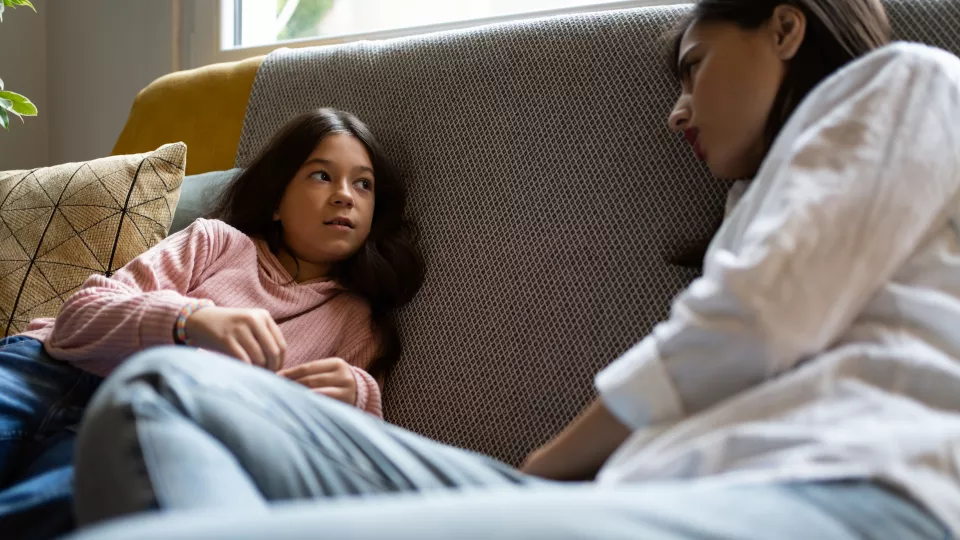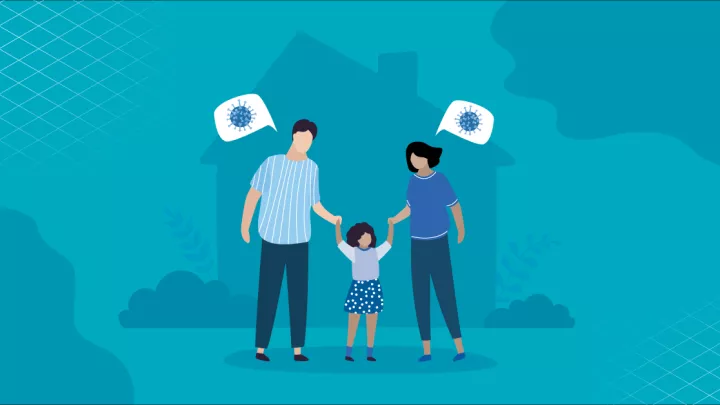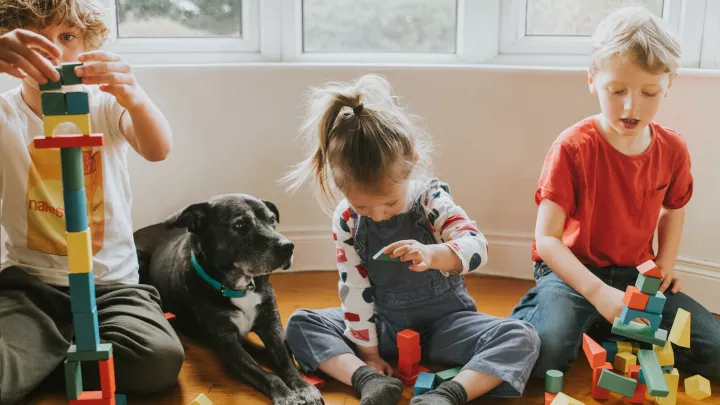
Talking to Children When They’ve Been Diagnosed With Cancer

As a parent or caregiver, talking to your child about a cancer diagnosis can be overwhelming—but clear communication with your child is critical to ensuring their emotional and physical health throughout treatment.
The most important rule is never to lie or conceal a diagnosis. Many parents may feel they’re protecting their children by withholding information, but kids will likely infer that something is wrong anyway.
Telling your child in the early stage of diagnosis and treatment will help build trust and allow them to feel included in their own health plan.
Sharing age-appropriate information
What information you share will differ based on your child’s developmental age.
All ages:
- Share the name of the cancer, such as medulloblastoma or leukemia.
- Explain the part of the body where the cancer is located and how it will be treated.
- Be honest about how their own lives will be affected.
- Encourage them to express their feelings and emotions.
- Other information is best presented based upon their developmental level.
Infant to 3 years:
- Use simplified words. At this age, kids cannot understand the concept of cancer. Help them understand by using words like “sick,” but don’t avoid the word cancer or the name of the tumor.
- Children will be most afraid of medical tests. Reassure them and plan to have a parent stay with them if possible.
Ages 3 to 7:
- Use simplified words to explain the diagnosis and procedures. For example, instead of using the word “chemotherapy,” say “medicine to get rid of the cancer.”
- Reassure children that they are not responsible for the cancer, even if they don’t ask.
- Be honest if a procedure is going to cause pain, but assure your child that everyone is going to do the best they can to reduce discomfort.
- If a child is hospitalized, remind them that it is not permanent.
Ages 7 to 12:
- This age group is capable of understanding a more detailed explanation of cancer. They are more likely to understand that they need to take medicine and go through treatments to get better.
- Be honest about treatments and sources of pain, assuring them that whenever possible, caregivers will do whatever they can to reduce pain.
- Be aware that they may hear from other sources (like school friends) about cancer. Encourage them to talk to you if they have questions.
Teenagers:
- Teens can understand a more complex explanation of cancer and may have many questions.
- They will be most worried about how treatment will affect their daily life, school, sports, friends, etc.
- They may be concerned about how the treatment will make them different than their peers or change their appearance (losing their hair, losing weight). Be honest about the side effects of treatment.
- Encourage them to turn to trusted sources for information on their condition, rather than the internet. Ask your care team for suggestions on helpful resources for teens.
- Make sure they know they can be involved in treatment decisions to help them feel in control during a frightening time.
Guiding productive conversations
Have a plan.
- Consider the best time and place to have the conversation with your child.
- Start by asking your child what they know (if developmentally appropriate).
- Take into consideration your child’s personality and temperament when talking about their diagnosis.
- Plan what you’re going to say to your child—even write it down—and practice if necessary.
- Use a calm and reassuring voice when talking with the child, and be mindful of your body language.
- It may be helpful to have another person with you when you talk to your child. This may be another family member or a member of the treatment team.
Be honest.
- Be open and honest with your child and encourage them to ask questions, allowing ample time for honest answers.
- Share your feelings and encourage your child to share their feelings as well.
- Be honest about the treatments that will be needed, including the possibility of pain and expected side effects.
Establish your family’s new normal.
- Try to maintain a routine for the child and the rest of the family.
- When possible, try to give the child choices and an opportunity to feel in control. Discuss ways to do this with your medical team.
- Continue to keep an expectation for behavior. For example, it’s okay to cry or be upset when facing a procedure, but the child’s care team will require an age-appropriate level of cooperation for safe care (I.e., no hitting or spitting).
- Normalize their feelings. Tell them it is OK to be scared, sad, or angry. Parents should be honest about their feelings as well. We don’t tell them it’s going to be OK if we don’t know it will. We tell them we are going to do everything possible to get rid of the cancer.
Be a source of support and connection.
- Reassure the child that they did not cause cancer, and it is not contagious.
- Encourage children to find a way to stay connected to loved ones and friends. This can be done through technology or letters and cards.
- Seek support for both you and your child.
You’re not in this alone
CHLA provides a variety of resources to families caring for kids and teens living with cancer as part of the Cancer and Blood Disease Institute’s Survivorship and Supportive Care Program.
Reach out to your treatment team to explore support services available to you at the hospital or in your community.


